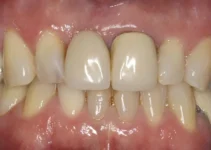Exploring various snoring treatment options in the UK can provide much-needed relief for those suffering from disrupted sleep due to snoring. This article delves into different treatments available, ranging from simple lifestyle changes to advanced medical interventions. Understand how each treatment works, their potential benefits, and what to expect when seeking solutions in the UK healthcare system, aiding you in making an informed decision to improve your sleep quality.
Causes of Snoring
Snoring is a common condition that affects millions of individuals worldwide. It occurs when the flow of air through the mouth and nose is partially obstructed during sleep. Understanding the underlying causes of snoring can help in identifying the appropriate treatments and preventive measures. In this section, we will explore some of the primary causes of snoring in greater detail.
Several factors contribute to snoring, ranging from lifestyle choices to anatomical abnormalities. Common causes include obstructed nasal airways, poor muscle tone in the throat and tongue, and obesity-related factors. Each of these causes can vary in severity and impact, influencing the overall quality of sleep and overall health.
Identifying the specific cause of snoring is critical for effective management. By addressing the root cause, individuals can reduce or eliminate snoring, leading to better sleep quality and improved overall well-being.
Obstructed Nasal Airways
One common cause of snoring is obstructed nasal airways. When the nasal passages are blocked or narrowed, it becomes difficult for air to pass through smoothly. This leads to turbulence during breathing, which causes the tissues in the throat to vibrate, resulting in snoring. Common reasons for obstructed nasal airways include allergies, sinus infections, and nasal polyps.
Allergies can cause inflammation and swelling in the nasal passages, leading to obstruction. Common allergens such as pollen, dust mites, and pet dander can trigger allergic reactions, resulting in nasal congestion and snoring. Sinus infections, on the other hand, can cause a buildup of mucus, leading to similar obstructions. Nasal polyps, which are noncancerous growths on the lining of the nasal passages, can also contribute to snoring by blocking the airflow.
In some cases, structural abnormalities in the nasal septum, such as a deviated septum, can contribute to obstructed nasal airways. A deviated septum occurs when the thin wall between the nasal passages is displaced to one side, causing partial or complete obstruction of the airway.
Poor Muscle Tone in Throat and Tongue
Poor muscle tone in the throat and tongue is another significant cause of snoring. During sleep, the muscles in the throat and tongue relax, which can lead to the collapse of these tissues into the airway. This collapse can cause partial blockage, resulting in the characteristic vibrations and noise associated with snoring.
Aging is a natural process that can lead to decreased muscle tone in various parts of the body, including the throat and tongue. As individuals age, the muscles may lose their strength and elasticity, making them more prone to collapsing during sleep. Additionally, certain lifestyle factors, such as excessive alcohol consumption and the use of sedatives or muscle relaxants, can further relax these muscles, exacerbating the problem.
Sleep position can also play a role in poor muscle tone-related snoring. Sleeping on the back can cause the tongue and soft tissues of the throat to fall backward, blocking the airway. Encouraging side sleeping can help reduce this type of snoring by keeping the airway more open.
Obesity-Related Snoring
Obesity is a well-known risk factor for snoring. Excess body weight, particularly around the neck and throat, can put additional pressure on the airway, leading to obstruction and snoring. Fat deposits around the upper airway can decrease the diameter of the throat, making it more likely to vibrate during breathing.
Studies have shown a strong correlation between obesity and the prevalence of snoring and sleep apnea. Weight gain can exacerbate snoring by increasing the amount of fatty tissue in the neck, which contributes to airway narrowing. This is why weight loss is often recommended as a primary intervention for individuals who are overweight and experiencing snoring or sleep apnea symptoms.
In addition to weight gain, other factors associated with obesity, such as poor dietary habits and lack of physical activity, can contribute to snoring. Adopting a healthier lifestyle, including a balanced diet and regular exercise, can help reduce body weight and, consequently, alleviate snoring.
By understanding the various causes of snoring, individuals can take appropriate steps to address the issue and improve their sleep quality. If you found this article helpful, consider exploring our other articles on sleep health and wellness to learn more about how to achieve a restful night’s sleep.
Non-Surgical Snoring Treatments in the UK
Snoring is a common issue that affects millions of people in the UK. While it might seem like a minor inconvenience, chronic snoring can lead to serious health problems such as sleep apnea, high blood pressure, and heart disease. Fortunately, there are several non-surgical treatments available that can help alleviate snoring. These treatments range from lifestyle changes to specific devices and medications.
Non-surgical treatments are often the first line of defense against snoring. They are generally easier to implement, less invasive, and can be highly effective. By exploring various options, individuals can find the best solution tailored to their specific needs.
In this article, we will delve into some of the most effective non-surgical snoring treatments available in the UK, focusing on lifestyle changes, anti-snoring devices, and medication options.
Lifestyle Changes
Making certain lifestyle changes can significantly reduce or even eliminate snoring. These changes are often the simplest and most effective treatments. For example, weight loss can reduce the fatty tissue in the throat, which can help open up the airway.
- Weight management: Excess weight, especially around the neck, can constrict the airway and exacerbate snoring.
- Alcohol and sedatives: Reducing or eliminating the intake of alcohol and sedatives before bedtime can also help, as these substances relax the muscles of the throat, making snoring more likely.
- Sleep position: Sleeping on one’s side instead of the back can prevent the tongue from falling backward and blocking the airway.
Furthermore, establishing a regular sleep routine can have a positive impact. Going to bed and waking up at the same time every day can reduce snoring by improving the overall quality of sleep.
Anti-Snoring Devices
For those who find that lifestyle changes alone are not enough, anti-snoring devices can be a useful addition. These devices work by keeping the airway open during sleep, thereby reducing or eliminating snoring.
Mouthpieces or mandibular advancement devices (MADs) are commonly used to treat snoring. These devices are designed to pull the lower jaw forward slightly, which helps keep the airway open. Studies have shown that MADs can reduce snoring in up to 70% of users.
Nasal strips and dilators are another option. They work by maintaining the openness of the nasal passages, which can be particularly effective for individuals whose snoring is related to nasal congestion or allergies.
Continuous Positive Airway Pressure (CPAP) devices are also used, particularly for those with more severe snoring issues or sleep apnea. These devices blow a steady stream of air into the airway, keeping it open during sleep. While CPAP machines can be somewhat cumbersome, they are highly effective in preventing snoring and improving overall sleep quality.
Medication Options
In some cases, medications can be prescribed to help reduce snoring. These medications are generally aimed at treating the underlying causes of snoring, such as nasal congestion or allergies.
Nasal corticosteroids are often prescribed for people with chronic nasal congestion. These medications reduce inflammation in the nasal passages, helping to keep them open at night. Antihistamines can also be effective for those whose snoring is triggered by allergies.
Decongestants may be used to reduce nasal congestion, although they are generally recommended for short-term use only due to potential side effects. In some cases, medications that help manage sleep disorders, such as sleep apnea, may also be prescribed.
It is important to consult with a healthcare provider before starting any medication for snoring. A thorough diagnosis can help pinpoint the underlying causes and ensure that the most effective treatment plan is chosen.
In conclusion, non-surgical snoring treatments offer a range of effective solutions for those looking to improve their sleep quality without undergoing invasive procedures. By considering lifestyle changes, anti-snoring devices, and medication options, individuals can find a treatment that works best for them. For more information on sleep health and treatments, be sure to check out our other articles.
Surgical Snoring Treatments in the UK
Snoring is a common issue that can severely impact the quality of sleep for both the person who snores and their partner. While there are several non-surgical treatments available, sometimes a more invasive approach is necessary to effectively manage and mitigate snoring. In the UK, surgical treatments for snoring have become more advanced and varied, providing multiple options for those seeking relief. These surgical procedures are generally considered when lifestyle changes and other interventions have failed to deliver the desired results. Several surgical methods aim to address the root causes of snoring, such as obstructed airways, excess tissue in the throat, and issues with the uvula. Each method has its benefits, risks, and suitability criteria, making it crucial to consult a healthcare provider for a tailored treatment plan. Below, we explore some of the widely adopted surgical snoring treatments available in the UK.
Uvulopalatopharyngoplasty (UPPP)
Uvulopalatopharyngoplasty (UPPP) is one of the most common surgical treatments for snoring. This procedure involves the removal of excess tissue from the throat, including parts of the uvula, soft palate, and pharynx. The primary goal of UPPP is to enlarge the airway, thereby reducing the vibratory motion that causes snoring. Studies have shown that UPPP can be beneficial, particularly in patients with obstructive sleep apnea (OSA).
UPPP typically requires general anesthesia and is performed in a hospital setting. Although effective, it is a more invasive option and comes with associated risks such as bleeding, infection, and difficulty swallowing. Recovery time can vary, but most patients are advised to take several weeks off from work to allow for adequate healing.
This method is often recommended for individuals who have failed to respond to non-surgical treatments like CPAP (Continuous Positive Airway Pressure) therapy. It is crucial to undergo a thorough evaluation by an otolaryngologist to determine whether UPPP is a suitable option for you.
Somnoplasty
Somnoplasty is a minimally invasive surgical treatment that uses radiofrequency energy to reduce excess tissue in the throat and nasal passages. Unlike other methods, somnoplasty targets the root cause of snoring by shrinking the tissues that contribute to airway obstruction, thus reducing snoring. The procedure is usually performed under local anesthesia and takes approximately 30-45 minutes.
This treatment involves the insertion of a needle electrode into the tissue, which emits controlled radiofrequency energy. This energy causes the tissue to shrink and tighten over time, resulting in a wider airway and less vibration during breathing. Studies have indicated that somnoplasty is particularly effective in patients with mild to moderate snoring and can also alleviate symptoms of mild obstructive sleep apnea.
One of the major advantages of somnoplasty is its relatively short recovery time. Most patients can resume normal activities within a few days. However, multiple sessions may be required to achieve optimal results. As with any surgical procedure, it is essential to consult with a specialist to discuss the potential benefits and risks.
Laser-Assisted Uvulopalatoplasty (LAUP)
Laser-Assisted Uvulopalatoplasty (LAUP) is another popular surgical option for treating snoring. This procedure uses a laser to remove parts of the uvula and soft palate, thereby reducing tissue that can obstruct the airway. LAUP is generally less invasive than UPPP, requiring only local anesthesia and usually performed on an outpatient basis. The primary advantage of LAUP is its precision. The laser allows for accurate removal of tissue with minimal bleeding and a faster recovery period compared to more invasive surgeries. Most patients experience significant improvement in their snoring, although it may take several sessions to achieve the desired outcome.
However, LAUP is not without its drawbacks. Some patients report experiencing a sensation of something stuck in their throat or increased dryness. The success of this procedure can also vary widely depending on the individual’s anatomy, making it essential to have a thorough consultation and examination by a qualified specialist.
In conclusion, surgical treatments for snoring in the UK offer various options to cater to different needs and severities of the condition. Whether you opt for UPPP, somnoplasty, or LAUP, each method has its unique advantages and potential risks. Consulting a healthcare professional is crucial for selecting the most appropriate treatment based on your specific condition and overall health. For more information on snoring treatments and other dental-related topics, feel free to explore our other articles.
Frequently Asked Questions About Snoring Treatment in the UK
If you’re looking for more information on how to address snoring issues, here are some of the most common questions and answers to consider for snoring treatment options in the UK.
What are some effective treatments for snoring available in the UK?
In the UK, snoring treatments range from lifestyle changes and medical devices to surgical options. Non-invasive approaches include nasal strips, anti-snoring mouthpieces, and positional therapy. For more severe cases, treatments such as Continuous Positive Airway Pressure (CPAP) machines or surgical interventions like uvulopalatopharyngoplasty (UPPP) may be considered, based on a professional medical assessment.
Are there any home remedies or lifestyle changes that can help reduce snoring?
Yes, several lifestyle changes and home remedies can help alleviate snoring. Reducing alcohol consumption, avoiding sedatives before bedtime, maintaining a healthy weight, and sleeping on your side instead of your back can significantly reduce snoring. Additionally, regular exercise and nasal decongestants can also help improve airflow and reduce snoring.

My name is Salman Kapa, a 73-year-old expert in bone regeneration and dental implantology. With decades of experience in the field, I am dedicated to advancing our understanding of oral health and hygiene. Through my research and writing, I aim to contribute to the development of innovative solutions in dental care.




